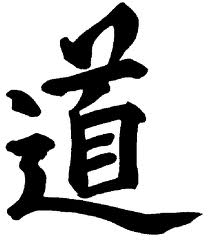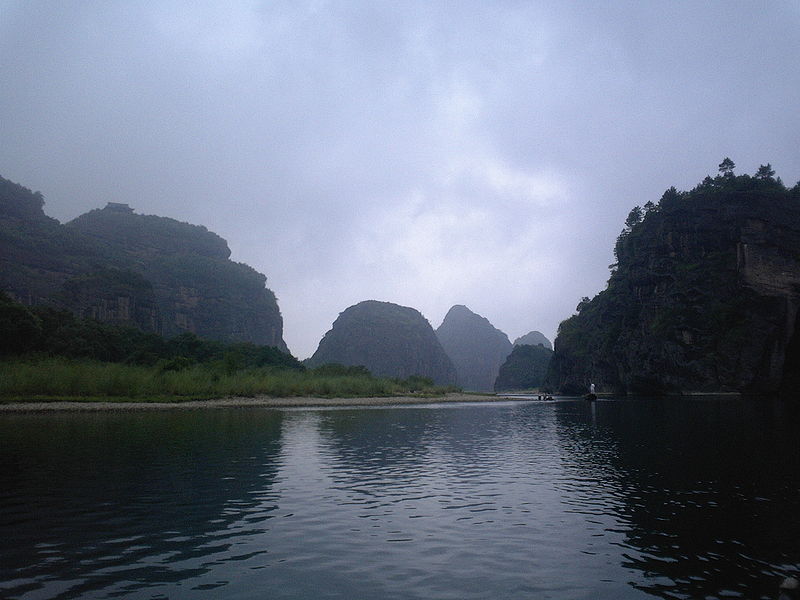Taoism, The path of ancient sages

The Tao that can be expressed is not the eternal Tao. -Lao Tzu.
Taoism, known as Tao Chiao or ‘The Teaching of the Way’ in China, is a spiritual tradition that was founded by the Chinese sage Lao Tzu around 600 BC, although it appears that Taoism existed before Lao Tzu.
The Tao is the nameless, transcendent reality. Essentially identical to the Absolute, Tao means literally ‘the Way’. Similar to related terms in other teachings such as Dharma in Buddhism, or the Brahman in Hinduism, the Tao transcends and yet includes all concepts about it. Tao has several levels of meaning. The first and most profound is the Tao as the transcendent Absolute. The second level is the Tao as immanent in the universe, an active power expressing the evolution, or ordering principle of life. Finally, the Tao also means the ‘way to live’, the teachings and practices through which one harmonizes one’s own understanding and energy with the universal Tao. So contained in the term the Tao is expressed the idea of the transcendent reality, and the path of harmony and awakening. According to Taoism, each human being is a reflection of the entire universe – a microcosm within the macrocosm. Both the universe and its inhabitants are subject to the same divine law, the Law of Tao. To live according to the Tao is to live in harmony with Nature.

Longhu Shan, the headquarters of the Zhengyi Taoists, in Jiangxi, China.
The principal sources of Taoism are the books Tao Te Ching and Chuangtzu. The Tao Te Ching, is widely regarded to be the most influential Taoist text. It is a short collection detailing the basic tenets of Taoism. According to a common story, Lao Tzu wrote it before leaving China for Tibet. Yin Hi, a border guard who realized the importance of Lao Tzu, begged him not to leave without passing on his wisdom. It is a foundational scripture of central importance in Taoism purportedly written by Lao Tzu sometime in the 6th centuries BC. The Chuangtzu is traditionally attributed to the Chinese sage Chuang Tzu (399-286 BC) and contains prose, poetry, humour and disputation.
Taoism is related to the later Zen Buddhism by its emphasis on tranquillity, non-artificiality, enlightment and especially by its doctrine of wu-wei (non-acting). So pervasive has the influence of Taoism been that is difficult to name a single facet of Chinese civilisation that has not been touched by it in some way. Religion, politics medicine, psychology, alchemy, astrology, art, music, literature, feng Sui and martial arts – in all these realms are to be found phenomena bearing the characteristic stamp of Taoism.

![]()
A Directory for a Day
The Classic of the Directory for a Day
JEH YUNG CHING
[An ancient Taoist text written by Anonymus. See http://www.sacred-texts.com/tao/sbe40/index.htm]
1. As to what should be done in a day, when the eating and drinking has been arranged, let one sit straight with his mouth shut, and not allow a single thought to arise in his mind. Let him forget everything, and keep his spirit with settled purpose. Let his lips be glued together, and his teeth be firmly pressed against one another. Let him not look at anything with his eyes, nor listen to a single sound with his ears. Let him with all his mind watch over his inward feelings. Let him draw long breaths, and gradually emit them, without a break, now seeming to breathe, and now not. In this way any excitement of the mind will naturally disappear, the water from the kidneys will rise up, the saliva will be produced in the mouth, and the real efficaciousness becomes attached to the body. It is thus that one acquires the way of prolonging life.
2. During the twelve hours of the day let one's thoughts be constantly fixed on absolute Purity. Where one thought (of a contrary kind) does not arise, we have what we call Purity; where nothing (of a contrary kind) enters the Tower of Intelligence (= the mind), we have what we call the Undefiled. The body is the house of the breath; the mind is the lodging of the spirit. As the thoughts move, the spirit moves; as the spirit moves, the breath is distributed. As the thoughts rest, the spirit rests; when the spirit rests, the breath is collected.
The true powers of the five elements unite and form the boat-like cup of jade, (after partaking of which), the body seems to be full of delicious harmony. This spreads like the unguent of the chrismal rite on the head. Walking, resting, sitting, sleeping, the man feels his body flexible as the wind, and in his belly a sound like that of thunder. His ears hear the songs of the Immortals; that need no aid from any instrument; vocal without words, and resounding without the drum. The spirit and the breath effect a union and the bloom of childhood returns. The man beholds scenes unfolded within him; Spirits of themselves speak to him; he sees the things of vacuity, and finds himself dwelling with the Immortals. He makes the Great Elixir, and his spirit goes out and in at its pleasure. He has the longevity of heaven and earth, and the brightness of the sun and moon. He has escaped from the toils of life and death.
3. Do not allow any relaxation of your efforts. During all the hours of the day strive always to be pure and undefiled. The spirit is the child of the breath; the breath is the mother of the spirit.
As a fowl embraces its eggs, do you preserve the spirit and nourish the breath. Can you do this without intermission? Wonderful! Wonderful! The mystery becomes still deeper!
In the body there are seven precious organs, which serve to enrich the state, to give rest to the people, and to make the vital force of the system full to overflowing. Hence we have the heart, the kidneys, the breath, the blood, the brains, the semen, and the marrow. These are the seven precious organs. They are not dispersed when the body returns (to the dust). Refined by the use of the Great Medicine, the myriad spirits all ascend among the Immortals.
![]()











